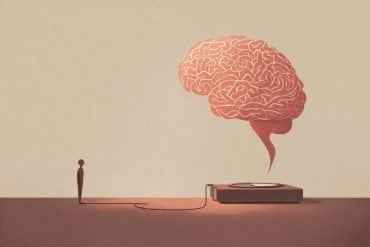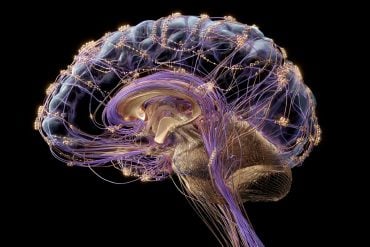Summary: A brief online intervention may help teenagers see themselves as capable of change, according to a new study. Researchers found that watching a single ten-minute video based on growth mindset principles shifted young people’s beliefs about their own personality traits.
However, the video did not significantly reduce immediate symptoms of anxiety or depression. The findings suggest such tools could play a valuable role in a broader strategy to promote youth mental well-being.
Key facts:
- Growth mindset boost: Teens who watched a growth mindset video were more likely to believe their traits can change.
- Mental health symptoms unchanged: The intervention didn’t immediately lower anxiety or depression levels.
- Low-cost potential: Online single-session tools could complement traditional mental health support for young people.
Source: University of East Anglia
A mental health hack designed to promote mental well-being could shift how teenagers view themselves – according to new research from the University of East Anglia.
A new study published today shows how watching a one-off ten-minute video can positively change young people’s beliefs about their personality traits.
But the intervention appeared to have little immediate effect on symptoms of anxiety or depression.

The findings add to a growing body of evidence that mental health support delivered online can play a valuable role – but may work best as part of a broader toolkit of services.
The team say that more research to evaluate its longer-term effect is needed.
Dr Kenny Chiu, from UEA’s Norwich Medical School, said: “Mental health conditions affect one in seven young people globally. In the UK, around one in five young people have probable mental health disorders, yet 75 per cent of them are not receiving any support.
“This is a huge problem – not least since most adult mental health conditions first emerge in childhood or teenage years.”
“It is therefore really important to promote positive emotional wellbeing and prevent mental health conditions from developing in the first place.”
Prof Richard Meiser-Stedman from UEA’s Norwich Medical School, said: “Experts in youth mental health have been exploring online single-session interventions (SSIs) as an accessible form of early support – particularly as traditional services face growing demand.
“Until now, most research in this area has been in the US.
“For the first time, we explored whether a brief video-based online intervention could help young people in the UK.”
The research team tested an intervention based on growth mindset principles – the belief that personal traits and abilities can change over time.
More than 100 teens were recruited through schools, charities, and social media.
Participants were randomly assigned to either complete a mindset intervention or join a waitlist control group.
They were asked to report their levels of anxiety, depression, and psychological flexibility, as well as their beliefs about personality, before the session and again one month later.
Dr Jessica Ball, who led this research as part of her doctoral clinical training at UEA, said:
“As one of the first UK-based low-cost online single session trials for youth mental health, our study shows promising results.
“While the video didn’t significantly reduce feelings of anxiety and depression, it did seem to change how participants thought about their personality, fostering the development of a growth mindset.”
Dr Chiu said: “This study shows early promise in implementing a low-cost and scalable way to support young people’s psychological development.”
This study was led by UEA in collaboration with Norfolk and Suffolk NHS Foundation Trust and the University of Bath.
About this neurodevelopment and psychology research news
Author: Lisa Horton
Source: University of East Anglia
Contact: Lisa Horton – University of East Anglia
Image: The image is credited to Neuroscience News
Original Research: The findings will appear in JCPP Advances







